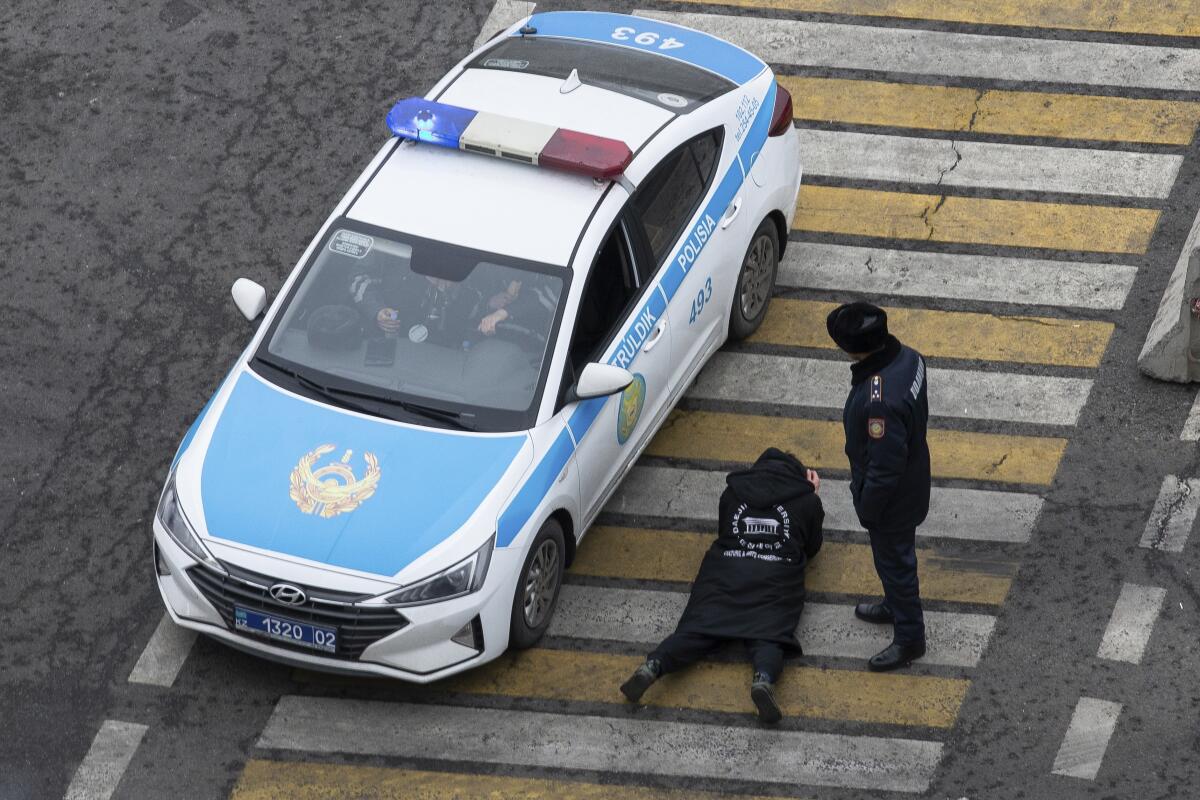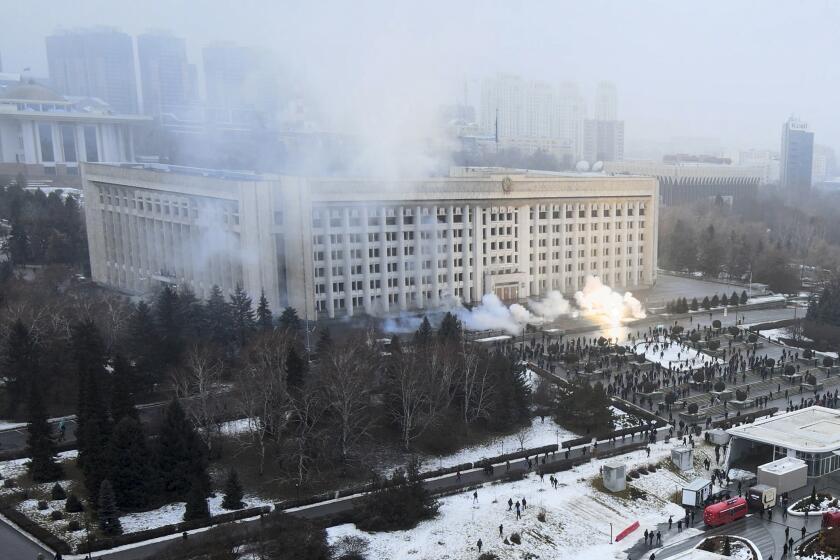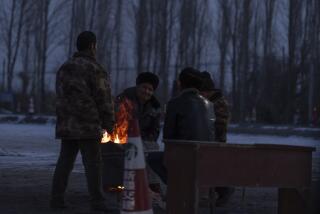Kazakh authorities detain nearly 1,700 more people after violent unrest

- Share via
MOSCOW — Kazakh authorities said Wednesday that they detained 1,678 more people in the last 24 hours over their alleged participation in the violent protests that rocked the former Soviet nation last week, the worst unrest since Kazakhstan gained independence three decades ago.
The additional detentions reported by authorities in Almaty — the country’s largest city, which was hit the hardest by the turmoil — brought the total number of arrests to about 12,000. More than 300 criminal investigations into mass unrest and assaults on law-enforcement officers have been opened.
Protests over soaring fuel prices erupted in the oil- and gas-rich Central Asian nation of 19 million Jan. 2 and quickly spread across the country, with political slogans reflecting wider discontent over the country’s authoritarian government.
As the unrest mounted, the authorities attempted to mollify the protesters and announced a 180-day cap on fuel prices. The government Cabinet resigned, and Nursultan Nazarbayev, the country’s former longtime leader, was ousted from his influential post of head of the National Security Council.
Intense protests have ripped through the oil-rich Central Asian nation of Kazakhstan since Sunday, with dozens of demonstrators and 12 police killed.
The demonstrations turned violent, with dozens of civilians and law enforcement officers killed.
In Almaty, Kazakhstan’s former capital, protesters set government buildings on fire and briefly seized the airport. The unrest was largely quelled by last weekend.
President Kassym-Jomart Tokayev has blamed the protests on foreign-backed “terrorists,” without offering evidence, and requested help from the Collective Security Treaty Organization, a Russian-led military alliance that includes six former Soviet states. The bloc authorized sending 2,500 troops to Kazakhstan.
Tokayev said Tuesday that the troops would start withdrawing this week, as they have completed their mission and the situation in the country has stabilized.
More to Read
Sign up for Essential California
The most important California stories and recommendations in your inbox every morning.
You may occasionally receive promotional content from the Los Angeles Times.











